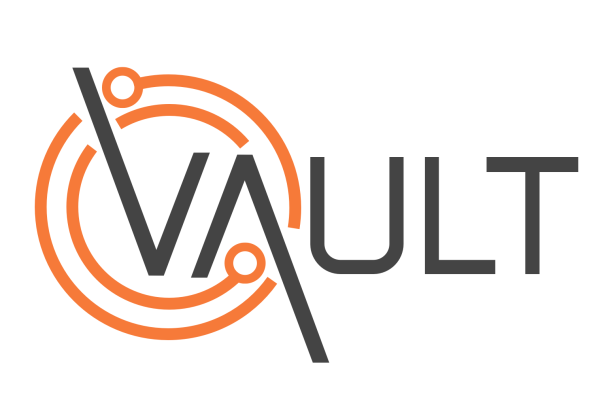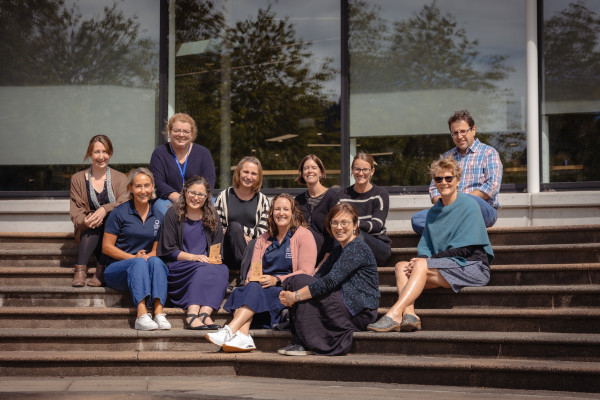- Tūhono home Hoki ki Tūhono
-
- Staff Directory
- Chief Executive Office Auckland International Office Corporate Services Finance Campus Services Functions and Catering Information Systems and Support Marketing, Communications and Engagement Learner Journey Academic Registry International Learner Services Te Punaka Ōwheo
- Learner Experience Academic Excellence Central Campus College of Community Development and Personal Wellbeing College of Engineering, Construction and Living Sciences College of Health College of Work Based Learning Open Education Resource/OERu Research and Postgraduate Studies Te Maru Pumanawa | College of Creative Practice and Enterprise
- Māori Development and Kaitohutohu Office People, Culture & Safety People and Culture Childcare Centre Te Ama Ako | Learning and Teaching Development Wellbeing and Safety Auckland Staff Directory Executive Office Academic Corporate Services Marketing and Business Development Human Resources Campus Quality and Programme Development
-
 Our people make a better world
Our people make a better world
We build the capabilities of individuals, organisations and communities and help them to realise their potential.
Staff Directory
-
- Tools
- Academic Integrity Declaration Form AIC Applications Dashboard Approved Programmes Approved Programme Fees Centralised Assessement Repository Chemwatch CMS - Tūhono & StudentHub updates Course Evaluation and Surveys CRM Applications CRM customer service hub Delegations policy/process Disability and Neurodiversity Dynamics 365 (CRM) EBS Ontrack EBS Report Email Security Personal Portal Employment Matters / Solarworkplace / Performance Reviews eTaxi eTV
- Financial Variance Reporting Hidden Disabilities Sunflower programme FCM travel intranet InPlace International entry requirements Knowledgebase articles Learner Capability Learner Support Dashboards Linkedin Learning Log a job with Marketing Login as an applicant Microsoft 365 Moderation App Moodle OP Docs OP Docs - Publishing OP Image Libraries Performance Excellence Portal Product Evaluation Panel
- Policy Library Privacy Programme and Course Design and Development Qualtrics XM RDS Remote Access Support Portal Research Database Robertson Library Staff FAQs about Graduation Status of Programmes Student Hub (Kāpehu demonstration view) Study Abroad info for learners Tūhauora I Wellbeing resources Uniprint Vault Webexpenses Auckland Tools
-
 Vault
Had an accident or near miss?
Log it here
Vault
Had an accident or near miss?
Log it here
-
- Communities
- Community AI Steering Committee Ally Network EBS Community of Interest EdTech Champions Health & Wellbeing Research Internal Evaluation Neurodiversity Professional Team Professoriate Proud@OP Student Support Website Advisory Group Web Champions Working under the Rainbow Project Learner Capability Trade Training Centre
- Committee Academic Committee Animals@OP Diversity and Equity Doctor of Professional Practice Committee Kaunihera Whakahaere - Leadership Council Internal Evaluation Learning & Teaching Leadership Team Library Committee Mental Health and Wellbeing Advisory Group Otago Polytechnic Board of Directors Pastoral Care Code Committee Programme Approvals Committee Research and Postgraduate Committee Research Ethics Committee Staff Subcommittee
- Think Tanks Mātauraka Our learners achieve educational success Pūtea Our financial success Tākata Our people, our team, our community Tiriti Our active commitment as a Treaty partner Tūroa Our commitment to be a sustainable and responsive organisation
-
 Create a community
Create a community
Do you have a community, committee or project that you'd like represented here?
Communities
-
- About OP
- Keep up to date All news All events All notices All blogs Share your info Create a news article Create an event Create a notice Create a blog
- Community and Partnerships Alumni and friends Education Foundation Operational information Academic calendar 2025 Academic calendar 2026 Current vacancies Dunedin campus map Our policies Topical FAQs
- Who we are Commemorative sites Māori Strategic Framework Our history Our strategic priorities Pasifika Strategic Framework (2025-2030) Vision and Values Working for us OP job opportunities Wellbeing Calendar Working at OP
-
New Zealand: 0800 762 786
contact us
International: +64 3 477 3014
Torn identītīes: A Kāi Tahu Pūrākau of whiteness
Author: Adrian Woodhouse
Supervisors: Martin Andrew Richard Mitchell Kelli Te Maiharoa
Torn Identītīes: A Kāi Tahu Pūrākau of Whiteness
Adrian Woodhouse
28 June 2021
Woodhouse, A. (2021). Torn identītīes: A Kāi Tahu Pūrākau of Whiteness. (A thesis submitted for the degree of Doctor of Professional Practice, Otago Polytechnic) [3.948 MB]
Abstract
Positioning of Research Project within the wider Doctor of Professional Practice programme
This research project is the final component of the Doctor of Professional Practice degree and builds on earlier work established in the year one papers ‘Review of Learning’ and ‘Learning Agreement’. Within these earlier papers, Indigenous Autoethnography and pūrākau (Māori storytelling) were explored as key theoretical concepts; these have been further expanded upon within this final project work.
Personal/Professional Identity, Practice Context and Project Kaupapa
In my professional life I have been a chef and, for the past 17 years, I have taught culinary arts at Otago Polytechnic primarily teaching on the Bachelor of Culinary Arts programme over the last decade. From an early age I had a passion for cooking which led me to train in the classical French curriculum and to go on to practice as a chef in the field of Haute Cuisine (more commonly referred to as Fine Dining). As a chef and a culinary arts teacher, kai (food) is a natural medium for me to encapsulate my way of seeing and making sense of this world. The pūrākau within this project are about kai and the whenua (land) exploring how my interactions with kai and the whenua are an expression of my cultural identity.
Like many others who whakapapa (descend from) to the southern reaches of Te Waipounamu, I am a descendant of an early mixed race marriage between a Kāi Tahu wahine (women) and a European whaler in the early part of the Nineteenth Century. Through the agendas of the settler colony in Aotearoa (New Zealand) and the actions of cultural assimilation I have found myself confused as to the validity and legitimacy of my Kāi Tahu identity. This project is an insider’s perspective from a self-labelled “white guy”, as I journey through the process of (re)claiming and (re)positioning my indigenous Kāi Tahu identity within my life. Within this wānaka (learning journey) of self-discovery, I have engaged in a process of sense making and self-healing through cultural restor(y)ing processes.
As a story of Kāi Tahu cultural dislocation, it is situated within a wider Kāi Tahu whānui narrative, where the legitimacy of our indigenous identity has been challenged by social and cultural constructs derived from a Western world view. As such, the wider kaupapa (purpose) of this project is that provides an enabling tool for Kāi Tahu whānui cultural reconnection, revitalisation and empowerment. In particular, it is intended to resonate with those Kāi Tahu who do not see themselves as meaningfully connected or authentic within their indigenous selves.
With the focus of this research being on Māori cultural regeneration, the ontological, epistemological and axiology positions within this project are framed within Kaupapa Māori Theory. As such, the research is situated within an Indigenous Autoethnography methodology and adopts pūrākau as a means to analyse the lived experience and craft mātauraka (knowledge) in ways that connects with contemporary society.
Through the lens of self (including whakapapa), this project analyses’ and critiques the lived experience through critical Whiteness Theory to illuminate why Kāi Tahu (like myself) have felt culturally dislocated from their culture. Furthermore, with the work situated with the institution of Haute Cuisine, it exposes how the white ideologies, values and beliefs of Haute Cuisine continues to practice and perpetuate whiteness. It asks questions of Haute Cuisine and its hegemonic ideologies in perpetuating the culturally isolation of Māori from their authentic selves.
Most importantly, this project confirms that for Kāi Tahu (and other iwi) cultural identity is embedded within a unique set of world views and values. For those Māori who are culturally dislocated, reconnecting with these world view and values has the potential to heal historical cultural trauma and embody ones indigenous self.
Keywords: culinary arts; education; colonisation; kaupapa Māori; pūrākau; indigenous autoethnography
Adrian Woodhouse's thesis was supervised by Martin Andrew, Richard Mitchell and Kelli Te Maihāroa.
Licence
This thesis is available under a Creative Commons Attribution Non-Commercial No Derivatives licence CC BY-NC-ND 4.0 International.
